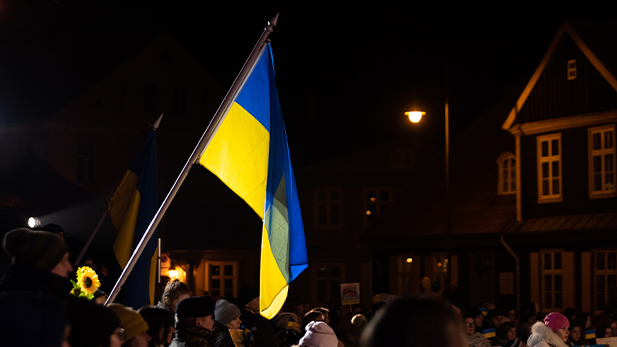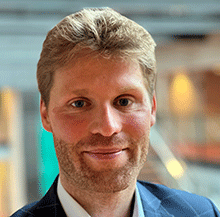We are willing to pay larger energy bills in solidarity with Ukraine

Russia’s invasion of Ukraine in February led to demonstrations and donations all over the world. The yellow-blue flag of Ukraine fluttered against the sky thousands of kilometres away. People raised money, and volunteers signed up to help refugees and provide shelter.
This indicates that human solidarity with a place of suffering and people's positions and everyday actions are connected. Now this phenomenon has been documented by research at Copenhagen Business School.
”We are the first researchers to investigate and define what solidarity with a place like Ukraine really is. We have documented that solidarity does in fact exist, and we have measured that compassion and sympathy do have an effect in practice,” says Alexander Josiassen, Professor of Marketing and Tourism and Director of the Center for Tourism and Culture Management at CBS.
The new concept is defined as follows: ”An individual’s compassion and sympathy with a place, resulting from an observation of relative suffering”.
The research has been peer-reviewed and published in the prestigious academic journal Annals of Tourism Research.
The more solidarity, the more...
The research is based on surveys conducted in the USA; however, according to Alexander Josiassen, the results can be transferred to Europe and other parts of the world since the research is based on core assumptions in social psychology that hold true across nations and cultures.
The studies show that the more solidarity people feel with Ukraine, the more
- inclined they are to pay more for airfare based on energy without Russian raw materials
- they are willing to someday visit Ukraine and other countries affected by the conflict (Poland, Finland and the Baltic countries)
- hospitable they are to Ukrainian tourists.
Additionally, people who feel compassion and sympathy with Ukraine are more inclined to make an active effort. For example, at the time they responded to the questionnaire, they had already attended a demonstration, donated money, bought Ukrainian products or tried to influence others with their positivity towards Ukraine or negativity towards Russia.
Zelenskyy chose an effective strategy
So, Ukrainian president Volodymyr Zelenskyy and his supporters were right to appeal for solidarity in campaigns and speeches to governments and populations in the West, says Alexander Josiassen.
Apart from politicians, NGOs and companies can benefit from the research findings.
”Now that we know more than just anecdotally that solidarity with Ukraine makes people willing to pay more and act, organisations and companies can implement it in their strategy. If, for instance, an airline company intentionally avoids buying Russian oil, they should make sure to use it in their marketing activities. This also gives us the opportunity to investigate the emergence of this kind of solidarity,” says Alexander Josiassen (please see the fact box below)
Knowledge can benefit companies and NGOs
This new knowledge is also relevant to decision-makers, organisations and companies working with places in crisis, natural disasters or human-caused suffering such as nuclear power accidents, because researchers have now made it possible to measure in a survey whether people feel solidarity with a place.
Subsequently, it is possible to pool the answers with results from other surveys in a program called AMOS 28, just like the Ukraine questionnaire. This way, we will know how inclined people are to act on solidarity. This knowledge may serve as a basis for a business strategy, a policy or humanitarian fundraising.
Alexander Josiassen wrote the article with Associate Professor Florian Kock from CBS and Professor Albert George Assaf from Isenberg School of Management in Massachusetts.
Contact information
Alexander Josiassen, Professor og leder af Center for Tourism and Culture Management, Tlf. +45 3815 2159, E-mail: aj.marktg@cbs.dk
Marianne Bom, Journalist, Tlf. +45 41852631, E-mail: mb.slk@cbs.dk

